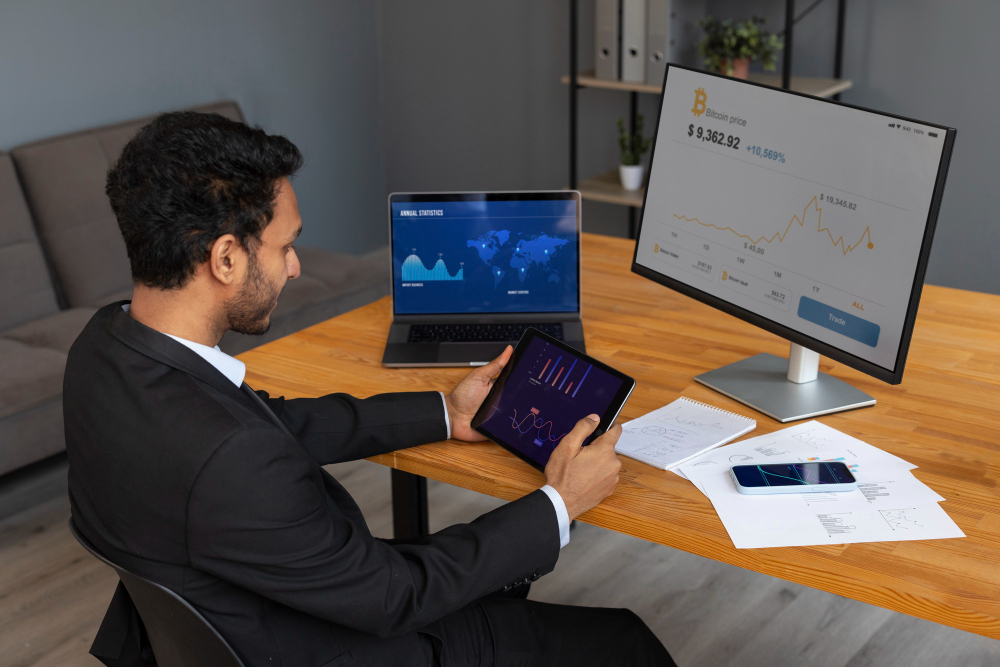How to Choose the Right Forex Broker for You

Embarking on a journey into the world of trading forex requires more than just a passion for financial markets. Choosing the right forex trading platform is a pivotal decision that can significantly impact your trading experience. This guide will explore the essential aspects of selecting a forex broker tailored to your needs.
What is a Forex Trader?
Before diving into the intricacies of selecting a forex broker, it’s crucial to understand the fundamentals of forex trading. Forex, short for foreign exchange, involves the buying and selling of currencies. Forex traders aim to profit from the fluctuations in currency exchange rates. To engage in trading forex, one needs a forex brokerage account.
What is Forex Trading?
It is the global marketplace where currencies are traded. It operates 24 hours a day, five days a week, across major financial centres worldwide. Traders participate in the forex market to speculate on currency price movements, aiming to capitalise on potential profits.
How Does a Forex Brokerage Account Work?
A forex brokerage account serves as the gateway to the forex market. It allows traders to execute trades, access financial instruments, and manage portfolios. Forex brokers act as intermediaries, facilitating trading transactions and the broader forex market. These accounts provide the tools and platforms for traders to analyse the market, place orders, and monitor their positions.
Tips for Selecting a Forex Trading Brokerage Platform
Choosing the right forex broker like Banxso involves careful consideration of various factors. Here are vital tips to guide you through the selection process:
- Regulatory Compliance and Reputation
Prioritise brokers that adhere to strict regulatory standards. Regulatory bodies, such as the Financial Conduct Authority (FCA) or the Securities and Exchange Commission (SEC), provide oversight and ensure brokers operate ethically. Check the broker’s reputation by reading reviews and testimonials from other traders. A broker with a solid reputation for transparency and reliability is likely to be a trustworthy partner.
- Trading Platform and Tools
An online trading brokerage platform is your primary interface with the forex market. Ensure the platform is user-friendly, offers advanced charting tools, and supports your required analysis. A reliable platform should be stable and available across various devices, including desktop and mobile. Test the demo version to get a feel for the platform’s functionality before committing.
- Cost and Fee Structure
Different brokers have varying fee structures, including spreads, commissions, and overnight financing charges. Compare the costs associated with each broker to find a balance between competitive pricing and the services provided. Be wary of hidden fees that may impact your overall profitability.
- Account Types and Minimum Deposits
Consider your trading preferences and financial capacity when evaluating account types. Brokers often offer different account tiers with varying features and minimum deposit requirements. Choose an account that aligns with your trading style and budget. Keep in mind that some brokers may offer additional perks for higher-tier accounts.
- Customer Support and Education
Reliable customer support is crucial, especially for beginners. Opt for a forex trading brokerage platform that offers responsive and knowledgeable customer support services. Additionally, assess the educational resources provided by the broker. Access to webinars, tutorials, and market analysis can significantly contribute to your trading knowledge and success.
- Security Measures
Security is paramount when selecting a forex broker. Ensure the broker employs robust security measures to safeguard your personal and financial information. Look for brokers with encryption protocols, two-factor authentication, and segregated client funds. A secure trading environment is essential for a worry-free trading experience.
The Bottom Line
Choosing the right forex broker is a pivotal step in your trading journey. You can make an informed decision that aligns with your trading goals by considering factors such as regulatory compliance, trading platforms, costs, account types, customer support, and security measures. Take the time to research and compare brokers to find the one that best suits your needs, setting the foundation for a successful and rewarding trading experience.


